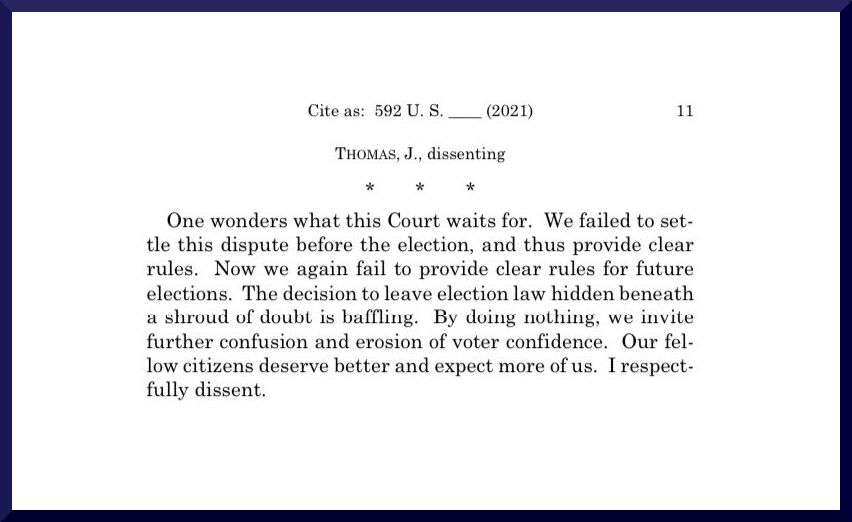Conservatives were disappointed to see the U.S. Supreme Court unwilling to take up an important case about election integrity. Republican Party of Pennsylvania v. Degraffenreid was a case filed to expose state officials for their careless disregard for the voice of Pennsylvanians in the 2020 presidential election. Mail-in ballots were at the heart of the problem. Many ballots were accepted with a postmark past Election Day, or with no postmark at all. Obviously, this is a matter worthy of the High Court’s attention. Instead, the court chose not to take up the case.
The faithful Justice Clarence Thomas issued a scathing dissent that gave a voice to the millions of Americans with serious questions about the integrity of America’s electoral system. He pointed out that “confidence in the integrity of our electoral process is essential to the functioning of our participatory democracy.” To put it another way, Thomas is saying that our laws, our Constitution, and our very system of government are jeopardized as long as the Supreme Court is unwilling to address the matter of politicians changing election rules as they go along.
The number of ballots changed in this particular election is not the issue. The Supreme Court needs to make sure states like Pennsylvania get the message that vote-tampering shenanigans will not be tolerated, no matter how many ballots are at stake. If your ballot is lawfully cast, it deserves to be counted. If your ballot is not lawfully cast, it should not be counted. Only the Supreme Court holds the power to make this message clear to every state in the union. Yet, they defaulted on this sacred and solemn responsibility. Justice Clarence Thomas was right to call them out for their dereliction of duty.
To the many Americans who are concerned about the state of our electoral process, your pleas are not falling on deaf ears. We still have champions like Justice Thomas who will take up our case for us. However, we should not wait for some champion to save us. Each one of us has a responsibility in our own state and community. Do you know if elections are protected where you live?






